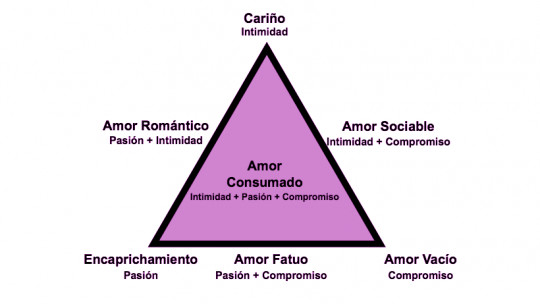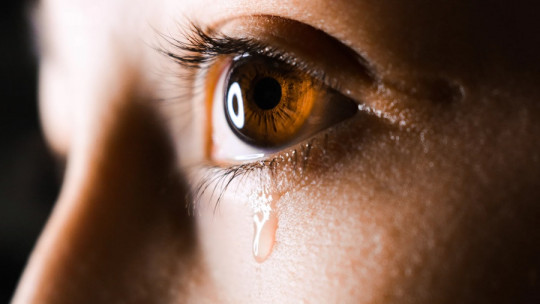
Love is something that inspires and motivates all human beings, but it can also cause us a lot of suffering when it is not reciprocated. That is why many movies, songs and even novels revolve around this theme (both love and heartbreak).
Defining love is extremely complicated, since there are different types of love (depending on the intensity, depending on who we love, etc.). The truth is that this definition becomes an arduous task because love is socially influenced and there are many opinions and ways of approaching it.
Leaving aside other ways of loving (such as motherly love), in this article we will focus on what true love is and what it is not, always from the concept of romantic love.
Research on love
Before getting into the subject, it is necessary to review a series of scientific discoveries that, at least in the West, They have helped us discover the great mystery of our brain’s relationship with love and falling in love Some results affirm that love and infatuation are fueled by a series of behaviors that help keep it alive.
But one of the most important findings of recent times is that love acts as a drug on our brain, and modifies its functioning, in the same regions as the drug, when we meet the person we love. Obviously, cultural factors are important, and to a greater or lesser extent they are responsible for a series of chemical reactions occurring at the brain level. Well, love is fueled by expectations and the concept of love that we learn throughout our lives.
Leaving aside the cultural factor, Researchers have found that, as occurs with psychoactive substances When we fall in love, a complex neurochemical occurs inside our head.
For example, we release large amounts of serotonin, which makes our mood improve and causes us to have obsessive thoughts, constantly remembering our partner. We also release a series of neurochemicals such as adrenaline, which make us more energetic, or we release dopamine in large doses, which is involved in drug addiction, because it is involved in reinforcing pleasurable behaviors. This neurochemical cascade, which can make us feel high when we are in love, also causes serious problems when we suffer a heartbreak, as we can end up depressed and obsessed with that person we have loved so much.
Curious studies about love
In recent decades, there have been many studies on love and falling in love, and some of the results or conclusions may surprise you. Data found by scientists in recent years states that:
What is love, according to Sternberg
One of the most recognized scientists in the field of falling in love and love is Robert Sternberg, who with his “Triangular Theory of Love” describes the different elements that make up this phenomenon, as well as the possible combinations of these elements when forming the different types of relationships.
The three key qualities in relationships are: intimacy, passion and commitment.
These qualities combine and give rise to different types of relationships. The most intense and rewarding expression of love is when these three aspects appear together. Sternberg states that there are 7 ways to love, they are the following:
- Consummate love has been called true love by other authors. In our article “True love should meet these 40 requirements” you can delve deeper into the characteristics of this form of love.
What is not love: toxic love
A concept that has become popular today is what is known as “toxic love.” Toxic love is characterized by a series of behaviors of emotional dependence or control that make the relationship harmful. The members of a toxic relationship suffer day in and day out.
But… What is toxic love like? Toxic love has the following properties.
Emotional dependence
At least one of the members of the couple has low self-esteem and their happiness depends on the presence of the other. He is afraid of meeting himself.
emotional codependency
Similar to emotional dependence, but the emotional codependent is addicted to dependence on his partner and, therefore, to the need to help him and worry about his well-being.
Limited social life
The members of the couple put aside their friendships and devote themselves purely and exclusively to the couple.
Relationship Obsession
The insecurity of one of the members causes them to become excessively obsessed with the relationship.
It is irrational and unrealistic
It is a love that lives on unrealistic expectations, which causes tremendous frustration in the members of the couple.
Need for approval from the other
As the person feels empty, they look for the security, stability and comfort that they lack in their own life in their partner.
Concern about change
One of the members of the couple cannot tolerate things going well for the other, largely due to their own frustration.
Possessive and controlling
This type of love is not free love, but one of the members of the couple interprets that the other person is their possession and becomes controlling.
Jealous
Jealousy and attempts to control are part of the couple’s daily life. Which makes them tremendously unhappy.
He is manipulative
It is a manipulative love, in which there is emotional blackmail by one of the two.
Bad communication
Communication is not fluid and, therefore, the relationship is not cordial. Trust has been lost.
Excessive conflicts
The above points cause the relationship to become toxic and conflicts are the daily bread.








